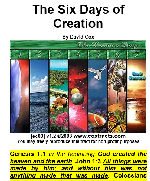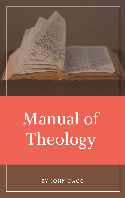Ads
False Prophets Are Greedy, Covetousness. Examining the contrast between the false prophet’s greed and the good shepherd’s sacrificial spirit.
Because of his understanding or mindset towards the physical “now” world and the future eternal world, he only focuses on temporal benefits. This means that he has earthly riches as his god.
Luke 16:14 And the Pharisees also, who were covetous, heard all these things: and they derided him.
2Peter 2:3 And through covetousness shall they with feigned words make merchandise of you: whose judgment now of a long time lingereth not, and their damnation slumbereth not.
We always need to contrast the false prophet against the man of God, the pastor that is after God’s own heart, the humble servant of God. The contrast makes the false prophet much more visible.
Contents
The Good pastor is committed, sacrifices of himself.
John 10:11-13 11 I am the good shepherd: the good shepherd giveth his life for the sheep. 12 But he that is an hireling, and not the shepherd, whose own the sheep are not, seeth the wolf coming, and leaveth the sheep, and fleeth: and the wolf catcheth them, and scattereth the sheep. 13 The hireling fleeth, because he is an hireling, and careth not for the sheep.
There are opposing characters between the good pastor and the false prophet, commitment to God’s service versus the self-gain mindset of a false prophet. The false prophet is overly worried about everything, and how it affects him materially. His eyes are firmly fixed on the earthly.
The good pastor has his eyes firmly fixed on the heavenly, and fulfilling his responsibilities to his flock the best he can. He is committed to his charge, to the extent that he personally with suffer from property and even the loss of his own life for his sheep.
Instead of a “me first, my gain” mindset, he empathizes with his sheep, and suffers with them. It is very appropriate to note that in olden times, shepherds of animals, sheep, lived with these sheep in the field, where they were, and the shepherd had a lifestyle built around service, feeding, and protecting his sheep rather than his own comforts. The good shepherd is marked by his priority of the sheep come before his own comfort and needs.
Luke 14:27 And whosoever doth not bear his cross, and come after me, cannot be my disciple.
The good pastor is not a super Christian, but he is a good example of what every Christian should be. But if a person desires salvation for material earthly gain, they are wrong.
If this is true for laymen, then it is, why would we overlook this requirement in our leaders who lead by their personal example?
Hebrews 13:7 Remember them which have the rule over you, who have spoken unto you the word of God: whose faith follow, considering the end of their conversation.
The key point here is that the only pastor or spiritual leader you should be under is one whose moral example of his life you can honestly follow.
The Good pastor worries and protects his testimony.
Acts 20:33 I have coveted no man’s silver, or gold, or apparel.
2 Peter 2:15 Which have forsaken the right way, and are gone astray, following the way of Balaam the son of Bosor, who loved the wages of unrighteousness;
1 Corinthians 9:14-16 14 Even so hath the Lord ordained that they which preach the gospel should live of the gospel. 15 But I have used none of these things: neither have I written these things, that it should be so done unto me: for it were better for me to die, than that any man should make my glorying void. 16 For though I preach the gospel, I have nothing to glory of: for necessity is laid upon me; yea, woe is unto me, if I preach not the gospel!
1 Peter 5:1-4 (To) the elders which are among you… Feed (pastor) the flock of God which is among you, taking the oversight thereof, not by constraint, but willingly; not for filthy lucre, but of a ready mind; Neither as being lords over God’s heritage, but being ensamples to the flock… chief Shepherd.
God’s People are not to be Covetous
Colossians 3:5 Mortify therefore your members which are upon the earth; fornication, uncleanness, inordinate affection, evil concupiscence, and covetousness, which is idolatry:
This is a great factor that distinguishes between the true man of God and a false prophet. Covetousness is far from a true man of God, but it is rather common among false prophets. If the minister is to be a moral example of Christ, then he cannot allow covetousness at all, not in his personal life, his dealings with people, and not in his ministry. The good shepherd “sacrifices” a better lifestyle in order to fulfill the ministry to the sheep.
The false prophet serves his own interests, his own desires, his own belly. This is what marks him clearly. His mind is constantly focused on the material.
Rom 16:17 Now I beseech you, brethren, mark them which cause divisions and offences contrary to the doctrine which ye have learned; and avoid them. Rom 16:18 For they that are such serve not our Lord Jesus Christ, but their own belly; and by good words and fair speeches deceive the hearts of the simple.
Phil 3:19 Whose end is destruction, whose God is their belly, and whose glory is in their shame, who mind earthly things.)
Note that our word covetousness is stronger than in the Bible. In the Bible, it is just a very, very strong desire. That is what God prohibits. This kind of desire has a materialistic, earthly element to it. At times, the Bible uses the word in a good context.
Covetousness is mutually Exclusive with being Saved
Eph 5:3 But fornication, and all uncleanness, or covetousness, let it not be once named among you, as becometh saints;
1Cor 6:9 Know ye not that the unrighteous shall not inherit the kingdom of God? Be not deceived: neither fornicators, nor… 1Cor 6:10 Nor thieves, nor covetous, nor drunkards, nor revilers, nor extortioners, shall not inherit the kingdom of God.
While the saints fall into sin, and we fight against this by rebuking these sins, and exhorting them to follow righteousness, this sin of covetousness goes to the heart of the matter in an evil and wicked way. God is love, and love is showing most often by giving in some way. When a person becomes stingy, has sticky fingers, seeks to take and keep and make that the very fiber of his soul, he denounces Christianity.
Matt 13:22He also that received seed among the thorns is he that heareth the word; and the care of this world, and the deceitfulness of riches, choke the word, and he becometh unfruitful. Matt 13:23 But he that received seed into the good ground is he that heareth the word, and understandeth it; which also beareth fruit, and bringeth forth, some an hundredfold, some sixty, some thirty.
Posts on Greed, Covetousness
- Zukeran – Abusive Churches
- Wiersbe, W. – Be Free: Galatians
- Why so many Crises Today?
- What is your Gospel?
- What is the Churchs Purpose?
- What is Prophecy?
- What is a “Fundamentalist” biblically considered?
- What does the Atonement Mean?
- What do false prophets want?
- We are not Saved by Baptism
Ministry for Greed
Jude 1:11 Woe unto them! for they have gone in the way of Cain, and ran greedily after the error of Balaam for reward, and perished in the gainsaying of Core.
Ellicott Comments on Jude 1:11
Perished in the gainsaying of Core—i.e., through gainsaying like that of Korah; referring to his speaking against Moses in the revolutionary opposition which he headed. These libertines, like Korah; treated sacred ordinances with contempt… Cain, like the inhabitants of Sodom and Gomorrha, outraged the laws of nature; Balaam, like the impure angels, despised the sovereignty of God; Korah, like those who disbelieved the report of the spies, spoke evil of dignities.
Matthew Henry Concise
False teachers are dreamers; they greatly defile and grievously wound the soul. These teachers are of a disturbed mind and a seditious spirit; forgetting that the powers that be, are ordained of God, Romans 13:1… It is hard, if not impossible, to find any enemies to the Christian religion, who did not, and do not, live in open or secret contradiction to the principles of natural religion… They corrupt themselves in the things most open and plain. The fault lies, not in their understandings, but in their depraved wills, and their disordered appetites and affections. It is a great reproach, though unjust to religion, when those who profess it are opposed to it in heart and life.
Barnes Notes
For they have gone in the way of Cain – Genesis 4:5-12. That is, they have evinced disobedience and rebellion as he did; they have shown that they are proud, corrupt, and wicked. The apostle does not specify the points in which they had imitated the example of Cain, but it was probably in such things as these – pride, haughtiness, the hatred of religion, restlessness under the restraints of virtue, envy that others were more favored, and a spirit of hatred of the brethren (compare 1 John 3:15) which would lead to murder.
ran greedily after the error of Balaam for reward – The idea here is, that all restraint was relaxed, and that they rushed on tumultuously to any course of life that promised gain. (See the notes at 2 Peter 2:15.)
gainsaying of Core Of Korah, Numbers 16:1-30. The word “gainsaying” here means properly contradiction, or speaking against; then controversy, question, strife; then contumely, reproach, or rebellion. The idea here seems to be, that they were guilty of insubordination; of possessing a restless and dissatisfied spirit; of a desire to rule, etc.
So to understand this, the rebellion of Korah is in the same vein as the false prophet. They are of a restless spirit. They are never satisfied, and always wanting to rule or give orders.
Cloke of Covetousness
1 Thessalonians 2:4 But as we were allowed of God to be put in trust with the gospel, even so we speak; not as pleasing men, but God, which trieth our hearts.
1 Thessalonians 2:5 For neither at any time used we flattering words, as ye know, nor a cloke of covetousness; God is witness:
1 Thessalonians 2:6 Nor of men sought we glory, neither of you, nor yet of others, when we might have been burdensome, as the apostles of Christ.
A person who has the deceitfulness of riches choke his soul; he cannot be saved. There is a character to a person who eyes and desires “things” and money. This cannot sit comfortably with Jesus Christ on the throne of his life.
Matt 6:19 Lay not up for yourselves treasures upon earth, where moth and rust doth corrupt, and where thieves break through and steal: Matt 6:20 But lay up for yourselves treasures in heaven, where neither moth nor rust doth corrupt, and where thieves do not break through nor steal:
A saved man has caught a glimpse of heaven. He has put his eye on heaven, and nothing else is of great interest to him. His interests and the pursuit of his life is in that place and the person of God in the center of that place.
Matt 6:21 For where your treasure is, there will your heart be also. Matt 6:22 The light of the body is the eye: if therefore thine eye be single, thy whole body shall be full of light. Matt 6:23 But if thine eye be evil, thy whole body shall be full of darkness. If therefore the light that is in thee be darkness, how great is that darkness!
God declares that nature is consistent, how He has made the man, this is how it works. Men set their affection on some “thing”. That thing, whether it is earthly or heavenly consumes them. If that thing is good and wholesome in God’s sight, then his whole body is good. But if it is failed, then nothing is good in his soul.
Matt 6:24 No man can serve two masters: for either he will hate the one, and love the other; or else he will hold to the one, and despise the other. Ye cannot serve God and mammon.
More Posts on Money and the Minister
Mammon here is riches, possessions. That one thing that you set your vision and goals in your life on obtaining, pleasing, ordering your life under that thing, that is what is important to be careful in the setting. Is it God? or Is it riches? (Covetousness)
Matt 6:25 Therefore I say unto you, Take no thought for your life, what ye shall eat, or what ye shall drink; nor yet for your body, what ye shall put on. Is not the life more than meat, and the body than raiment?
People excuse their covetousness by saying that the necessities of life demand that they focus on “things”, “possessions”, and by course, “money”. If they don’t have money, they cannot exist. True. But Jesus directs our thoughts to nature, God provides for all his creatures, and it is only when a creature breaks with what God wants of him that the creature lacks.
Matt 6:26 Behold the fowls of the air: for they sow not, neither do they reap, nor gather into barns; yet your heavenly Father feedeth them. Are ye not much better than they? Matt 6:27 Which of you by taking thought can add one cubit unto his stature? Matt 6:28 And why take ye thought for raiment? Consider the lilies of the field, how they grow; they toil not, neither do they spin: Matt 6:29 And yet I say unto you, That even Solomon in all his glory was not arrayed like one of these. Matt 6:30 Wherefore, if God so clothe the grass of the field, which to day is, and to morrow is cast into the oven, shall he not much more clothe you, O ye of little faith?
The clear teaching is that we are not to worry about money things, because God provides, and this is a matter of faith in God.
Matt 6:31 Therefore take no thought, saying, What shall we eat? or, What shall we drink? or, Wherewithal shall we be clothed? Matt 6:32 (For after all these things do the Gentiles seek:) for your heavenly Father knoweth that ye have need of all these things.
The unsaved typically worry about the necessities of life, and especially money. We have a special relationship with God, and by means of this relationship (salvation), we communicate our needs and desires to God.
Note that God already knows them and is working on always providing them to us. But also note that life and its needs is really a by-product of our relationship with God. Things go wrong when we are not in a right relationship with God.
Matt 6:33 But seek ye first the kingdom of God, and his righteousness; and all these things shall be added unto you. Matt 6:34 Take therefore no thought for the morrow: for the morrow shall take thought for the things of itself. Sufficient unto the day is the evil thereof.
Firstly, worry is condemned. Secondly, our central focus should not be on the economic, but on the spiritual.
Heb 13:5 Let your conversation be without covetousness; and be content with such things as ye have: for he hath said, I will never leave thee, nor forsake thee. Heb 13:6 So that we may boldly say, The Lord is my helper, and I will not fear what man shall do unto me.
Covetousness and the hoarding up of riches undercut the fact that God provides for us on a daily basis. If that is true, and God will never forsake us, then a wild craziness for having a lot of money (riches) goes against your belief in God. This is why riches and salvation are mutually exclusive because riches only come when the person expends much time, energy, life resources, and priorities on getting them. Doing that in itself makes the riches a god in your life.
Ps 73:25 Whom have I in heaven but thee? and there is none upon earth that I desire beside thee.
When a person seeks satisfaction, comfort, trust on temporal things, he is denying his trust in God. The two are mutually exclusive. Christians trust God, the unsaved trust things, and their own ability. Instead of believing and living in God’s promises of provision, the person sets riches, money, possessions, businesses, real estate, position, fame, etc. as their fundamental position in life, and that achieving those things becomes their god, the god that they confide in for stability and for life sustenance.
See Covetousness, Topical References on;
False Prophets Are Greedy, Covetousness







